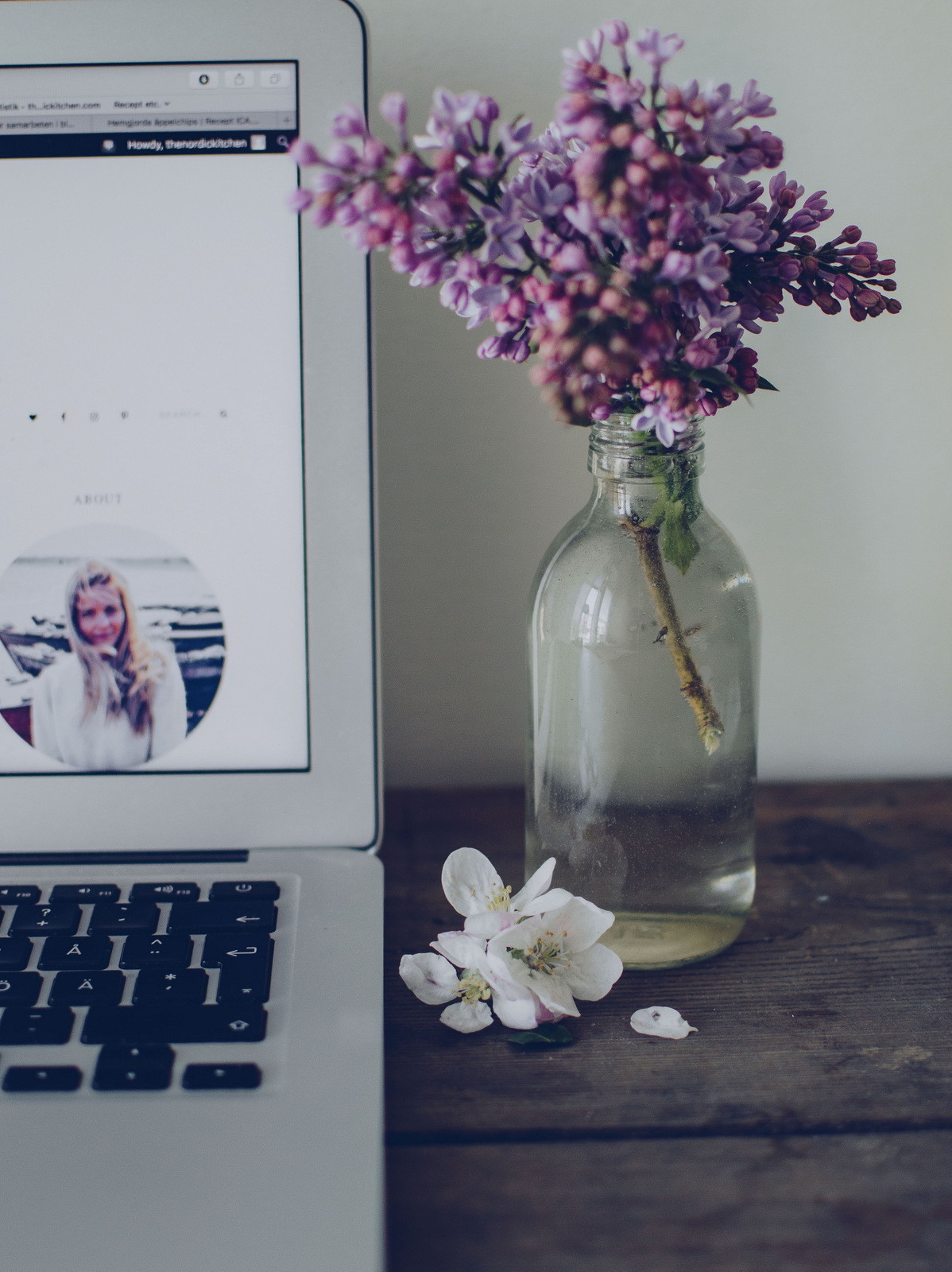6 ways to increase productivity and get (more) things done

Raise your hand if you’ve found yourself scrolling through Instagram or Pinterest for a good half hour instead of writing that essay or doing your accounting or whatever it is that you have to do. Can you honestly say that you have never ever spent precious time doing totally useless things when you could instead have spent that time working on something that would actually make a difference in your life? If you’ve never done that, then…wow. Congrats! You don’t have to read any further. But, if you recognize this behavior – then this post is indeed for you. If you feel that you need to become more productive, be less distracted and get shit done, but have no idea how to do it – then keep on reading.
The first thing is to realize that no matter who you are or what you do, each day has 24 hours. Some people seem to have at least 40 hours each day, but they don’t. They’re just being super productive. And being productive is not the same thing as being stressed because if there’s something I know, it’s how bad stress is for you. I’ve been on the edge of burnout, with hair loss, weird rashes all over my face, insomnia, and a pulse way too high. So let’s be clear on that – increasing your productivity should not make you stressed out. If you get stressed, you’ve done something wrong.
Productivity is rather how efficient we are, or like I prefer to put it:
a measurement of how well we use our time.
The ideal situation would, of course, be that in one hour, we would work efficiently for 60 minutes. Right? You might think that that’s what you’re doing, but if you feel like you’re not getting stuff done, you’re probably not doing it. Let’s face the truth here. For example, how many times do you reach for your phone during one hour? My experience says that it’s waaay more often than you believe. And how often do you find yourself staring out the window, thinking about what you’ll have for dinner later or your plans this weekend? These habits are not making you more productive, rather the opposite. But if you want a change, here are six things you can do.

Put your phone away
Put your phone out of reach. I have a shelf about a meter away from my desk where I put my phones (yes, I have two) during the day. I will hear when someone calls or texts me, but I won’t be able to reach it if I don’t stand up and walk to the shelf. This has really helped me to stop scrolling through Instagram whenever I feel like I need a little break (we will talk about taking breaks soon). When I first started doing this, it was super hard. So every time I reached for my phone (only to realize that I couldn’t reach it) I drew a line on a piece of paper. At first, it was like 2 times/hour.
That got me thinking. If I had actually reached my phone, opened up Instagram and scrolled for 5 minutes – it would have been 10 minutes every hour (+ the 2 x 15 minutes to get back to where I was before). Add the email thing (above) to this. When you think about it, it’s not so strange that we feel like we’re not getting anything done. Don’t you agree? The beautiful thing is that we can change our habits. Because that’s what it is – habits. Now I don’t reach for my phone at all. No lines on that paper anymore. And I’m working with social media. Like, that’s part of my job. I post when I’ve planned to post, I answer to comments when I’ve planned to do so. The rest of my time – the phone is out of reach. It has made such a huge difference and I’m sure it will for you too.
Take a break!
Take regular breaks. Once every hour is perfect. If you work effectively for 55 minutes, you can allow yourself a 5-minute break every hour. This tiny break will do amazing things to your productivity, believe me. No one can work and be super productive for 5 hours straight, that’s for sure. When we try to do that, that’s usually when we end up staring out the window or checking our phones just to get a break. That’s why we should take regular breaks to prevent that behavior. Use your hourly 5-minute break to refill your glass/bottle of water. This break won’t just help you be more productive, but also make sure you drink enough water throughout the day. How great is that? Also, when you walk to refill your glass of water you stretch your legs a bit, which is very good for everyone who’s sitting on a chair 8 hours a day. Win-win.
Plan ahead
Take an honest look at how you start your day. Do you get started right away or do you spend a good 30 minutes, trying to figure out what to do first? Maybe what to do at all during the day? Not planning your day (or week) ahead is probably one of the biggest productivity killers out there. When you start your day you should know exactly what to do. So, how do you do that? It’s not complicated at all. Just take 10 minutes before you leave the office for the day and write down the tasks/meetings/appointments you have for the next day. When you arrive the next morning, you just check your list of things to do and start working on the first one. By doing so, you save several minutes each morning, otherwise spent trying to figure out what to do. Easy peasy!
This method is very effective, but you can amp up this planning skill even more. Spend 30 minutes (or less!) on Monday morning and plan your entire week. You probably know about meetings and appointments already, so write them down in your calendar. Write down deadlines, things you have to do, workouts, answering emails – everything. What should you do each day? Planning ahead is key. And when you have your week planned, it’s easy to see how much time you have left for new projects, and that leads us on to the next thing on the list.
Learn to say no
This is so important, yet so few are doing it. You probably recognize this: you’re having too much to do already, then your boss comes asking if you can do this other thing too. A lot of people gladly accept the task, even though they are too busy. Being stressed out over the projects you are working on is a productivity killer. For short periods of time, and in small doses, stress can make us think clearer and we can work more effectively. But, often stress is a negative thing. Too much of it does the opposite, we get dumber (yes!), we are procrastinating and we try to find excuses to not do the work. Or, we start multitasking, which I will talk about below.
So, learn to say no. Explain why you don’t have time to take on another project. You are only human, not a machine. You can’t do everything, even if you want to. Don’t feel bad if you feel like there’s too much on your table. Tell your boss that you want to do a great job and you can’t do that if you accept yet another task. A good boss will understand. You’re not lazy, you’re just being honest and realistic. And there is nothing wrong with that. Of course, this also applies to your private life. Say no to the things you don’t want to do, or don’t have the time to do. Maybe that gym class before work is making you more stressed than relaxed. Maybe you should stop going and take a walk during your lunch break instead. Be realistic and don’t do things to impress others. Your self-care is the most important thing. Remember that.
Focus on one thing at a time
Multi-tasking is for people who want to get less done. Yes, that’s right. Our brains aren’t designed to handle a lot of things at the same time. Instead of working 15 minutes on one project, then 30 minutes on another and then spending 15 minutes to answer emails – finish one thing before you start with the next one. Like I said about the emails before, our brains don’t like to be interrupted. The brain wants to focus on one thing at the time. So, when you start working on something, you don’t stop until it’s done. Or, if it’s a big project, reserve 4 hours on Tuesday (or whatever it may be) and then work 4 hours on that project on Tuesday. Those 4 hours are dedicated to that project. Nothing else gets in between. That’s why it’s so important to plan your days and your weeks ahead.
By planning your week ahead you can reserve time for your different projects and make sure that you work on every project during the week. You don’t forget anything and you know exactly when you’re supposed to work on which task. You know that project number 2 will get attention on Tuesday so you don’t have to think about that on Monday. Instead, you can focus completely on project number 1. Believe me, you’ll get a lot more done when you plan your weeks like this.
What do you do to increasy productivity? Tell me in a comment! <3

